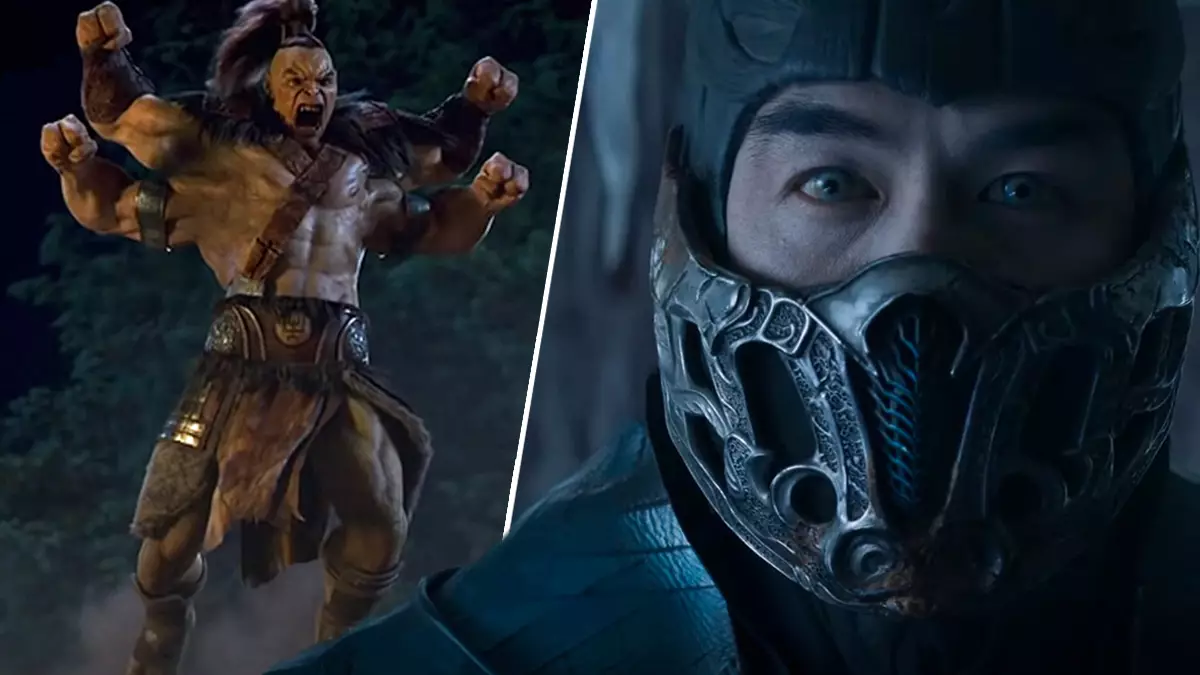
The upcoming Mortal Kombat movie's development is a tale as long and storied as the iconic franchise's two decades' worth of lore. Seven years of development have led it down a path many are sceptical it's able to emerge from victorious. But, as its final April 16th US release date ebbs ever closer (with a UK release TBC), fans have now seen a trailer, been introduced to its characters and been teased with small tidbits of plot. Needless to say, expectations are high from its devoted but demanding following.
Video game movies of the past have been notoriously awful. Granted, that's one of the things that made Mortal Kombat's 1995 big screen outing so beloved - it just stinks, but it absolutely knows that. Incredibly camp and lousy with terrible '90s CGI, it has a roguish charm that sets it apart from other medium crossover movies. The fact that game-to-film adaptations traditionally climb directly out of conception and into the bin is a fact not lost on director Simon McQuoid and producer Todd Garner, who both attended a virtual roundtable interview for press.
Advert
"I don't really look at this as a video game movie," says Garner. "I look at this as a martial arts movie, and there's a lot of good martial arts movies. So it's much easier to find good movies to use as references when you're looking at martial arts movies."
Huge if true, but it's a sentiment that McQuoid echoes. "Rather than changing things, which has been done in the past with video game movies, we keep the fundamentals and the DNA true to Mortal Kombat, but we just tell it in a way that has an accessibility to it. [One that] doesn't stop the fans feeling like we've completely paid respect to the material accurately."
Australian director McQuoid is perhaps best known for cutting his teeth in television adverts, which is something that set alarm bells ringing when the news of him helming the project broke. The movie's writer Greg Russo (whose previous work includes Saints Row, Death Note 2 and more) was quick to remind fans of a little piece of McQuoid's work they might be familiar with: one of the greatest PlayStation adverts of all time, Michael.
Todd Garner, meanwhile, is a veritable heavyweight of the big screen. "I've been doing this for about 30 years", he reminds us. "I worked at Walt Disney for 10 years, I had another studio that I worked at called Revolution Studios, I've worked on a lot of big movies like Armageddon and Pearl Harbour, xXx, Knight And Day and Con Air." With all these pieces in place, it's fair to hope that the puzzle of making this Mortal Kombat movie the Mortal Kombat movie, could be a done deal. At any rate, it's certainly one that's intent on taking a different direction to the fan favourite 1995 title.
Advert
I was invited to watch a preview of the first 13 minutes of Mortal Kombat prior to talking to Simon and Todd, and was immediately struck by its more sombre tone. The opening footage sets up the bitter rivalry between Hanzo Hasashi (Scorpion) and Bi-Han (Sub-Zero) in a post-feudal Japan where, as Mortal Kombat aficionados will know, Bi-Han mounts a brutal attack on the peaceful Hanzo, his clan and his family. The ensuing battle, of which some can be glimpsed in the movie's trailer, is fiercely well choreographed, and it's clear the director and producer had no intention of sparing expense when it game to the violent bones of Mortal Kombat. But they were also wary of making it pure "torture porn".
"[We wanted] to pay respect and make sure we were doing Mortal Kombat justice with the amount of brutality within the film," McQuoid says. "It's not violence for violence's sake, but it allowed the conflict and the battles and the fights to be authentic. When someone gets a kunai (a type of knife) through the head, blood and brain splatters out the back, and that's probably what would happen. So I like that, because my whole stylistic approach to this was always to try and be as authentic and as real, and as cinematic as possible."
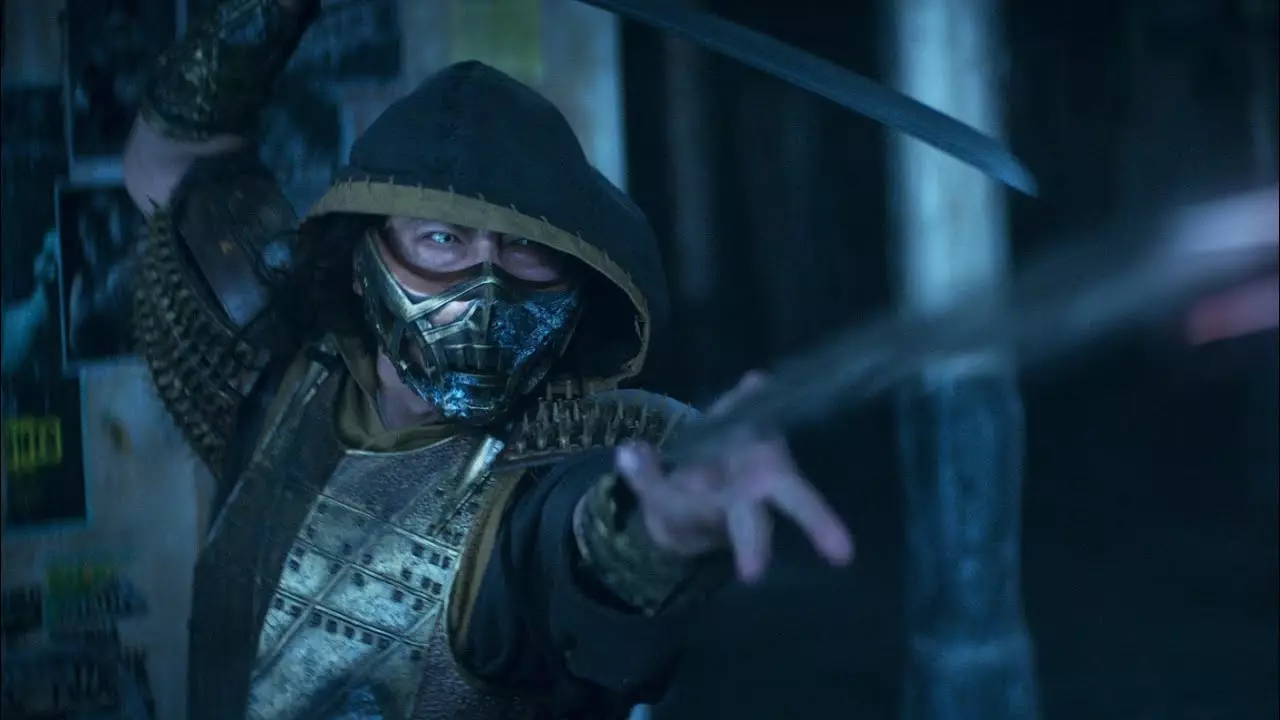
That "violence for violence's sake" is an interesting point to consider. Mortal Kombat games are inherently violent, with characters literally fighting to the death every five minutes to advance the story. But when considering that for a cinematic approach, it's just something that doesn't make for good viewing.
Advert
McQouid continues: "[The fights] were put in there to drive the story and characters, just as much as they were to do Mortal Kombat justice. I didn't want to just take them and do them as a sort of executioner, like, 'Alright, well, we've done them,' you know? They needed to feel threaded into the storyline of the film." Garner adds: "we're also not making torture porn, you know? We're not making a horror movie that's slashing everybody up just for the sake of doing it. It comes from a real place, it comes from a grounded place."
No torture porn noted, a key part of any Mortal Kombat experience is nevertheless the gore - it's what fans want, and what they pay for. In another recent interview, McQuoid said that he saw drums of fake blood around the set, so there's little indication that they'll be holding back when the moment calls for it. But not all the blood will be (fake) real.
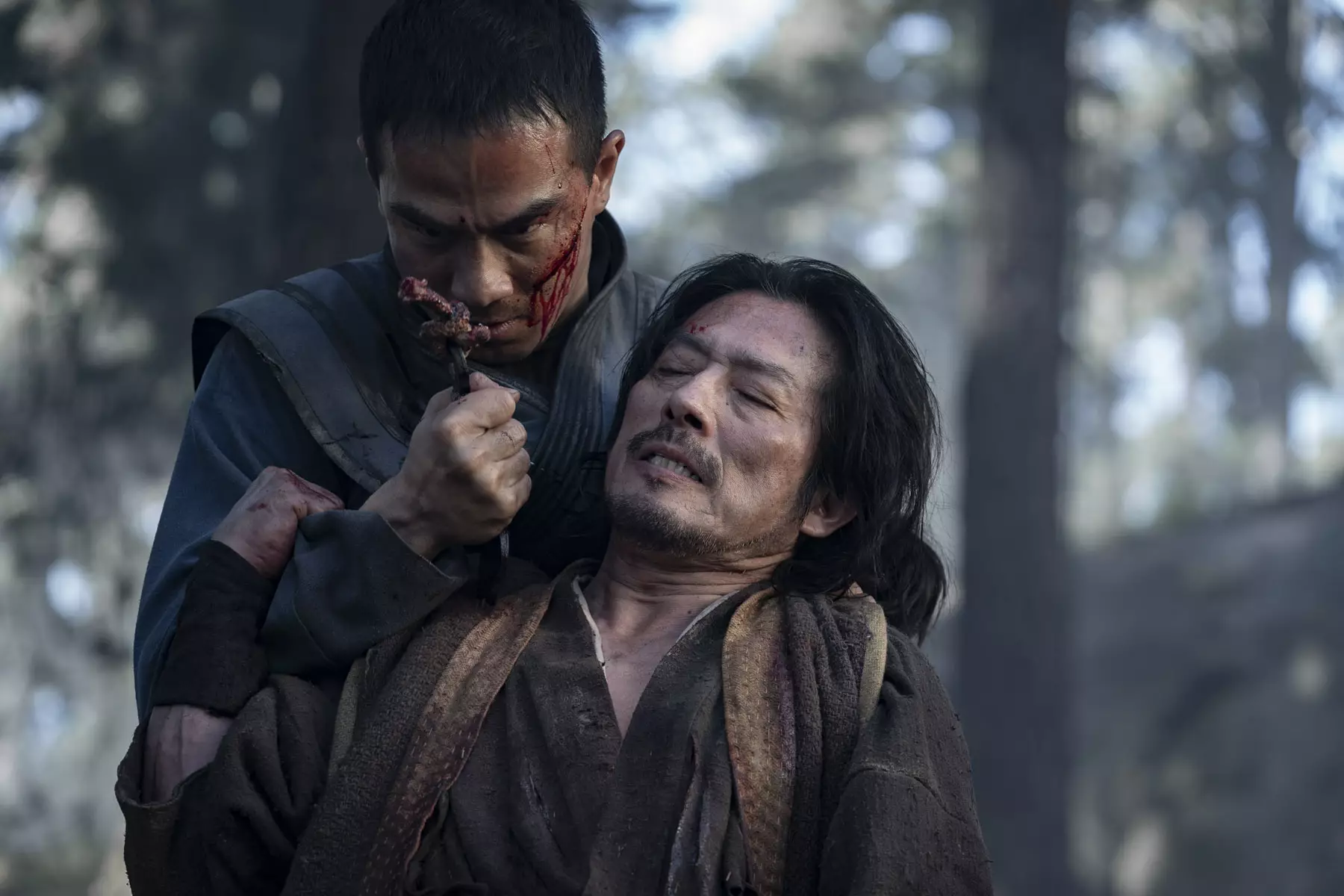
"A lot of [the blood was] VFX because we came across the visual effects company, Method, in Melbourne, an incredible visual effects company who were responsible for Goro," continues McQuoid. "They're also responsible for another part of the film that no one's seen [which is] a pretty gutsy moment. Those guys, by virtue of the success we had on Goro, allowed us to actually lean on VFX a little more with blood and so forth.
Advert
"What that allowed us to do, was sort of dial it up and down, much more surgically, pardon the pun, but so that we could really, really control that. That was important, because we didn't want to get to a point where we had moved it into an NC-17 rating (basically an extreme 18 on the UK's BBFC scale). It's pretty easy to cross that line. I wanted to get up to the line, but we obviously couldn't cross it, because then we become a different film, and people wouldn't screen it."
Speaking of that "pretty gutsy moment", producer Garner was also keen to impress the importance of getting the fight scenes just right, and making sure they flowed with the narrative of the film. For example, the introductory fight between Hanzo and Bi-Han is elegant, depicting two martial arts masters in their prime. But other fights will be much more animalistic.
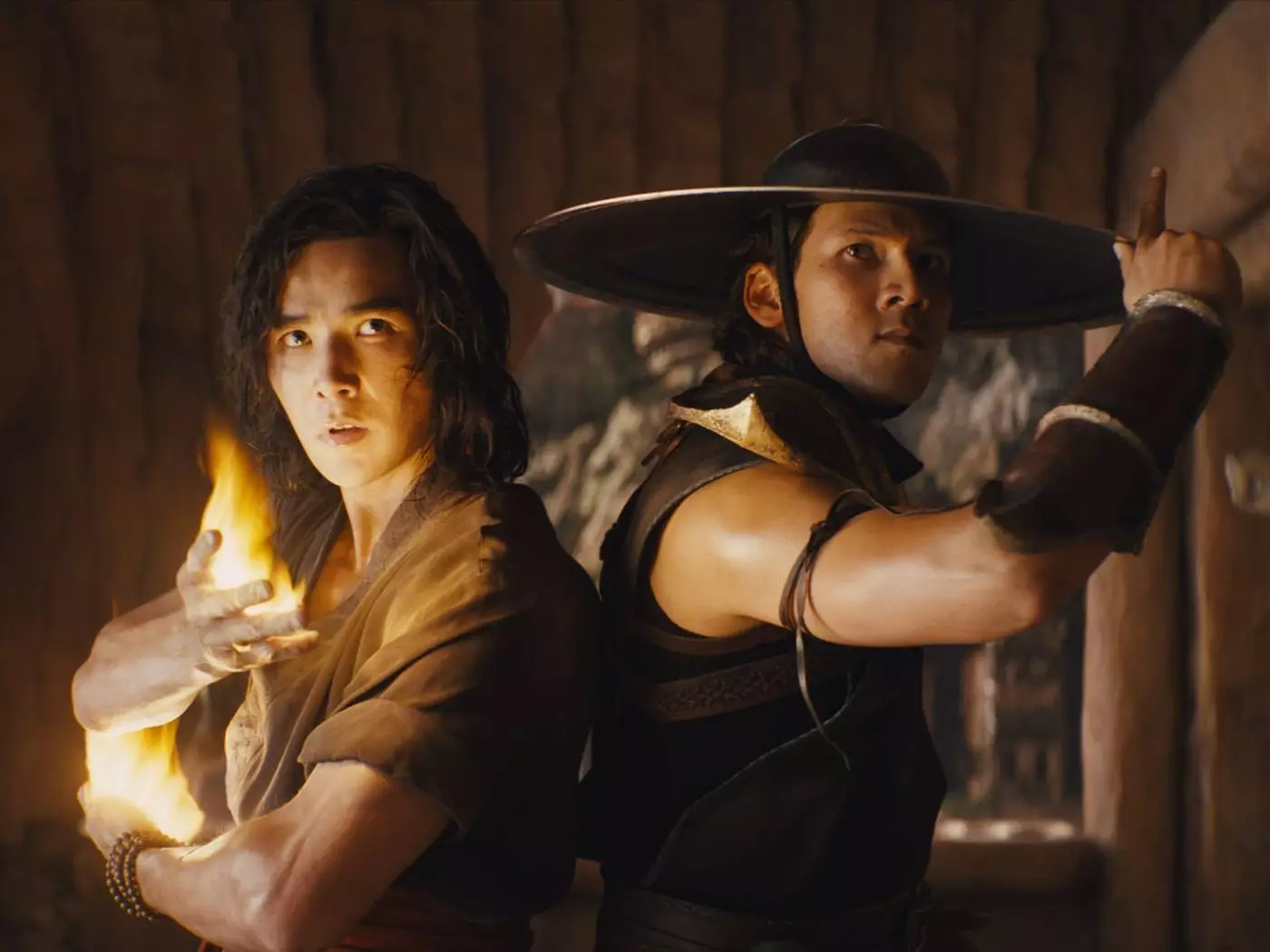
"There's an incredibly brutal fight in this movie," Garner says. "Probably one of the most brutal fights I've seen. Just bone crunching, real violent, messy, you know, and that's obviously shot very differently than the first scene you guys saw in the trailer. Doing a 540[-degree] spin has this very operatic, kind of very choreographed look to it. And then you see Sub-Zero freeze someone's blood and stab them with it. That obviously has a very specific look and shooting style. So the goal was to make sure that every fight was unique."
Advert
Fans of the franchise might be curious to know what kind of influences Mortal Kombat will draw upon in order to set itself free of the video game movie curse - and as Garner explains, that inspiration has been found in a smorgasbord of martial arts movie pedigree. "Well, my goodness," he exclaims. "You look at all the [Akira] Kurosawa early stuff, you look at Crouching Tiger Hidden Dragon, you look at The Raid. I mean, we even look at John Wick and Deadpool and The Matrix and Kill Bill. And you know, we looked at everything."
Much like those heavyweights, Mortal Kombat is aiming to not just make it all about the fights - there has to be a balance struck otherwise they run the risk of hitting "fight fatigue", as McQuoid puts it. "You just don't want to get to the point where it's just like, 'Oh, no more fighting.' So each fight had to have meaning. Each fight had to build character, had to build story and tell a story. But I wanted to build a certain amount of suspense and a certain amount of drama within scenes."
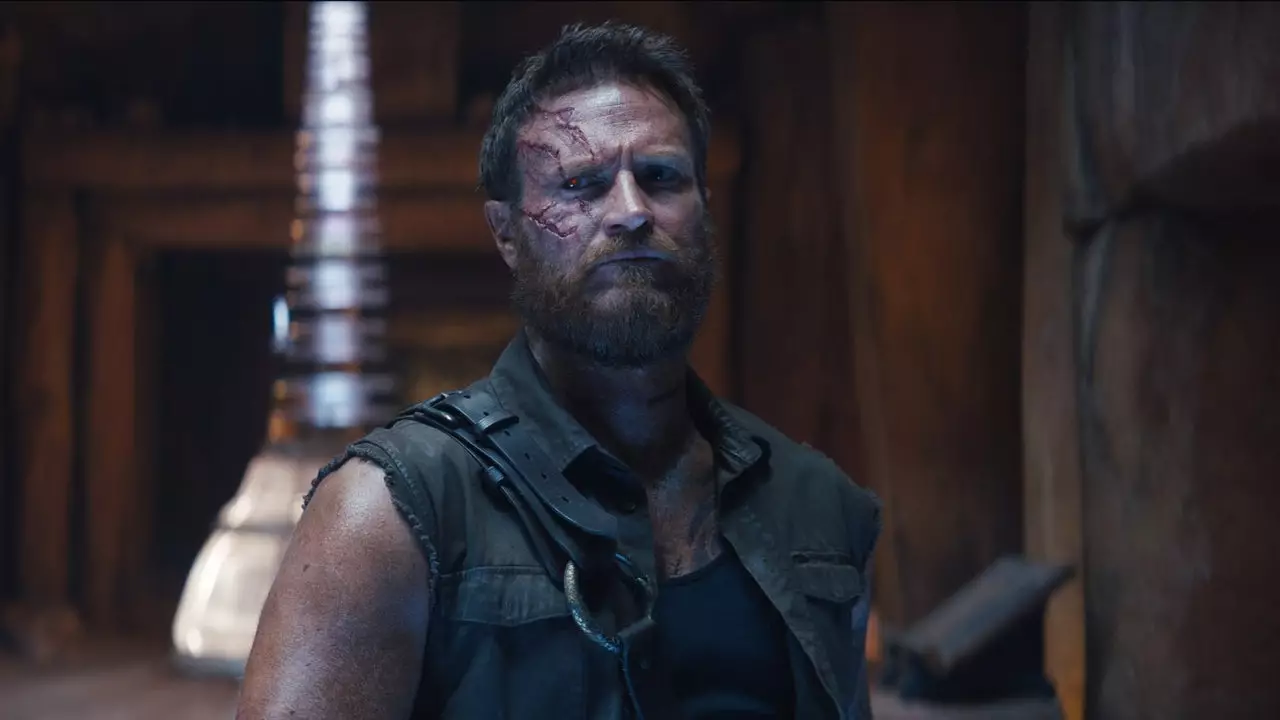
The actual tournament of Mortal Kombat on which the games are based will also have to take a bit of a backseat in the movie. Garner explains that having a film based around a tournament just wouldn't have worked. "We didn't want to just make a tournament movie where everybody shows up in a big circle and just, you know, runs in and starts fighting each other. That, I don't think, would have worked very well. Again, that starts to feel more like a video game movie, quite frankly."
The story of Mortal Kombat has always played out in the numerous dramas between its characters; most notably within the franchise's original cast of ten fighters. We know that the movie will star a brand new character as its protagonist, Cole Young played by Lewis Tan, who will serve as a conduit into the universe for the audience. But there's also a number of familiar faces making an appearance. Scorpion and Sub-Zero, Sonya Blade, Kano, Liu Kang and Raiden to name a few. However, there is one notable omission: Johnny Cage.
When pressed, Garner was surprisingly deft at almost confirming Cage wouldn't make an appearance, but that fans might be reunited with the Van Damme wannabe in a live-action production at some point in the future. "Well, Johnny Cage is a great character, and he is an important character, and he's a really fun character and he deserves to be treated as such. And when you look at Johnny Cage with his ego and his flashiness, and you look at Kano, they have a similar thing, and we didn't want to muddy the waters in terms of those two competing. So we have great plans for Johnny Cage. He's not somebody that you can just throw into an ensemble movie and expect him to shine. So we have big plans for him coming up."
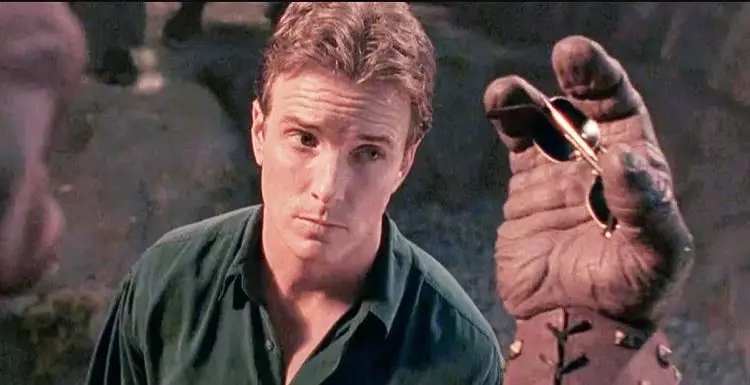
In the end, it is evident that both McQuoid and Garner are keen to stress the importance of creating a good martial arts movie that does justice to its source material, rather than just cashing in on the behemothic success of Mortal Kombat as a franchise. The more serious tone will offset that of the 1995 movie (and its 1997 follow up, Mortal Kombat: Annihilation, which we absolutely do not talk about), which ultimately was a snapshot in time, impossible to recreate. But that might be the secret of its success - of letting sleeping dogs lie and creating something brand new.
Referencing a recent misquote where McQuoid was said to have boasted his movie would have the greatest fight sequences of all time, the director was quick to correct any confusion. "My job as a director is to get ideas from everyone, I really want your ideas. But then I said to [the development team], 'So all you have to do is make the best fight scenes ever done in a movie ever,' and I said it to them as a joke. Then that person took that as if I'm saying that about my own movie, I would never say that. That's not for me to decide. That's for you guys to decide."
Mortal Kombat will release in theatres and on HBO Max in the US on April 16th, with a UK date to be confirmed.
Featured Image Credit: New Line Cinema / Warner Bros.Topics: Feature, Movies, Mortal Kombat